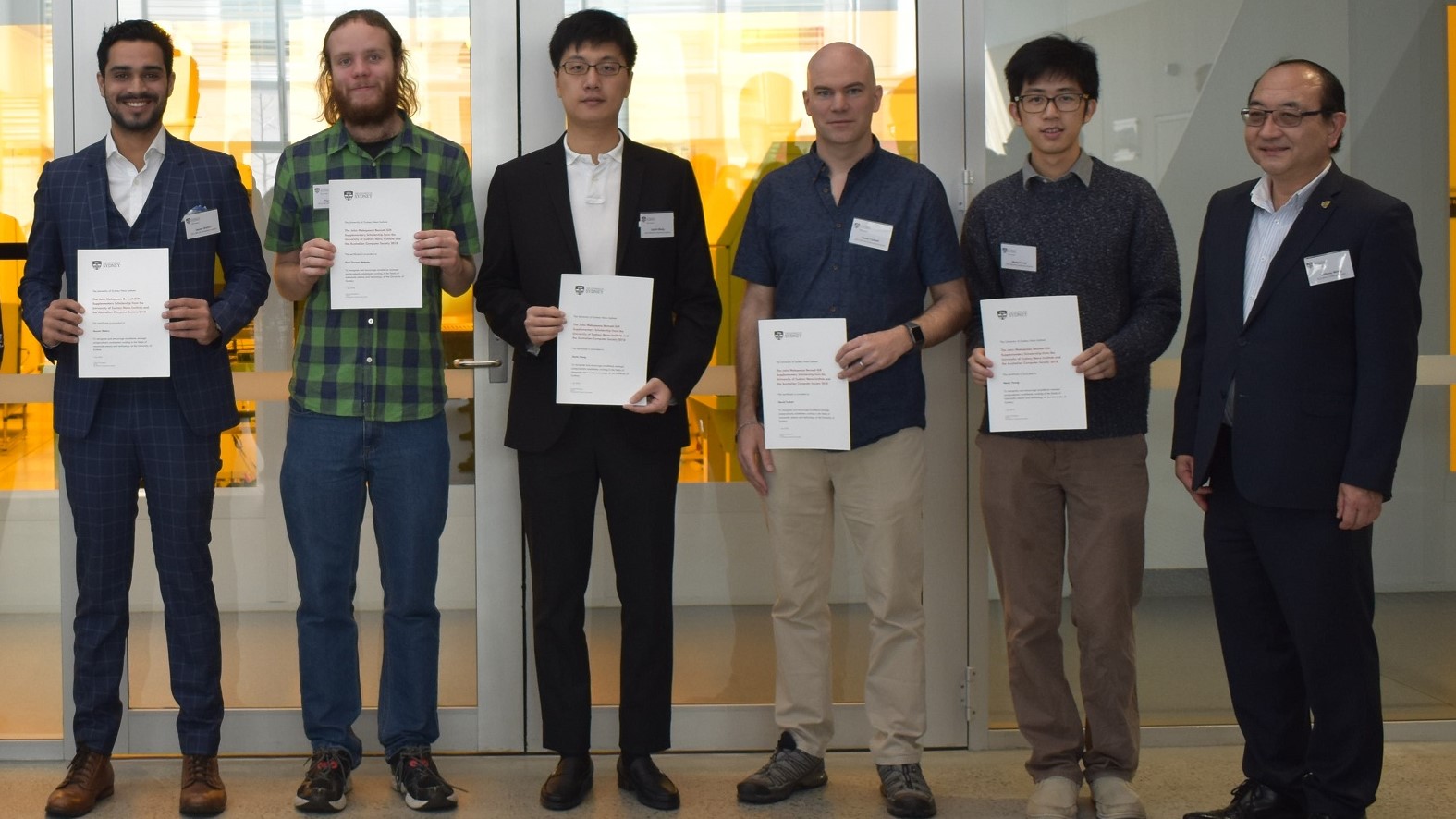ACS has awarded scholarships to six PhD students at the University of Sydney as part of its commitment to innovation.
The John Makepeace Bennett Postgraduate Scholarships, named after the ACS founding president, recognise the cutting edge work being undertaken at the University of Sydney Nano Institute.
Six students were awarded scholarships last year, too, and continue to progress with their studies.
The six students in 2018 and their areas of study are:
Jayson Waters
Thesis: Foucauldian Genealogy, or critical counter history, of quantum mechanics and International Relations
“The purpose of this genealogy is to explore how quantum mechanics influenced international relations (and will continue to do so in the future), and how the international system has influenced the development of quantum mechanics. This genealogy serves the dual purpose of clarifying the history and origins of International Relations and quantum mechanics, and highlighting potential new avenues of inquiry and theoretical development.”
Nhan Truong
Thesis: Linking three fields of nanotechnology, bio-signal processing and artificial intelligence (AI)
“How to detect and predict specific patterns underlying time-series data, for example, seizure-related patterns in electroencephalogram (EEG) signals. We aim in developing a nanotechnology foundation for time-series bio-signal processing. Using novel computing paradigms with emerging non-volatile solid-state memory technologies that can be fabricated in research facilities such as Sydney Nano Cleanrooms, we will implement bio-inspired computing processes on top of the currently successful artificial intelligence algorithms we have developed. The system we develop using this support will be a time-series signal processing capable of detecting and predicting anomalies in EEG brain signals related to epileptic seizures.”
David Tuckett
Thesis: Fault tolerant methods for quantum error correcting codes in two dimensional architectures
“Existing theoretical schemes for quantum computation in the presence of the errors inevitable in any quantum device require immense numbers of quantum bits and gates, far beyond what experimentalists can achieve in the foreseeable future. My project focuses on a highly promising class of schemes, topological error correcting codes, and explores techniques for improving their efficiency. This could reduce the overhead and accelerate progress towards practical quantum computing. It especially explores how the most resource-intensive part of conventional schemes, “magic state distillation”, may be circumvented by both developing new techniques and maximising the potential of existing techniques.”
Henry Yeung
Thesis: Light field image classification and Light field image super resolution algorithm
The resolution of the captured image is usually constrained by the employed equipment. For solving such problem, a super-resolution algorithm, represented by a deep learning based model, can be trained to enhance the resolution of a captured image by at least a factor of 2 with little observable artefacts. This can be applied to increase the resolution of images taken at a nano scale from equipment such as Scanning Electron Microscope (SEM). This project aims to develop a super-resolution algorithm for obtaining a high resolution SEM images for task such as 3-D SEM reconstruction compared to the low resolution counterpart.
Paul Thomas Webster
Thesis: Fault-Tolerant Quantum Computing with Topological Error Correcting Codes
Existing theoretical schemes for quantum computation in the presence of the errors inevitable in any quantum device require immense numbers of quantum bits and gates, far beyond what experimentalists can achieve in the foreseeable future. My project focuses on a highly promising class of schemes, topological error correcting codes, and explores techniques for improving their efficiency. This could reduce the overhead and accelerate progress towards practical quantum computing. It especially explores how the most resource-intensive part of conventional schemes, “magic state distillation”, may be circumvented by both developing new techniques and maximising the potential of existing techniques.
Jianfu Wang
Thesis: Fiber-optics/photonics and optoelectronics signal processing
“Wireless inductive heating coil is promising for the fast and convenient tuning of the silicon-based photonic devices. To achieve the best performance, the coil geometry need to be carefully design to achieve best heating efficiency at the resonant frequency. Microwave photonics signal processing is a wide range of areas dealing with the fiber optics, photonics and optoelectronics. The wireless heating coil combines the knowledge of electromagnetic field, optoelectronics and silicon-based nano-size photonic devices.”









